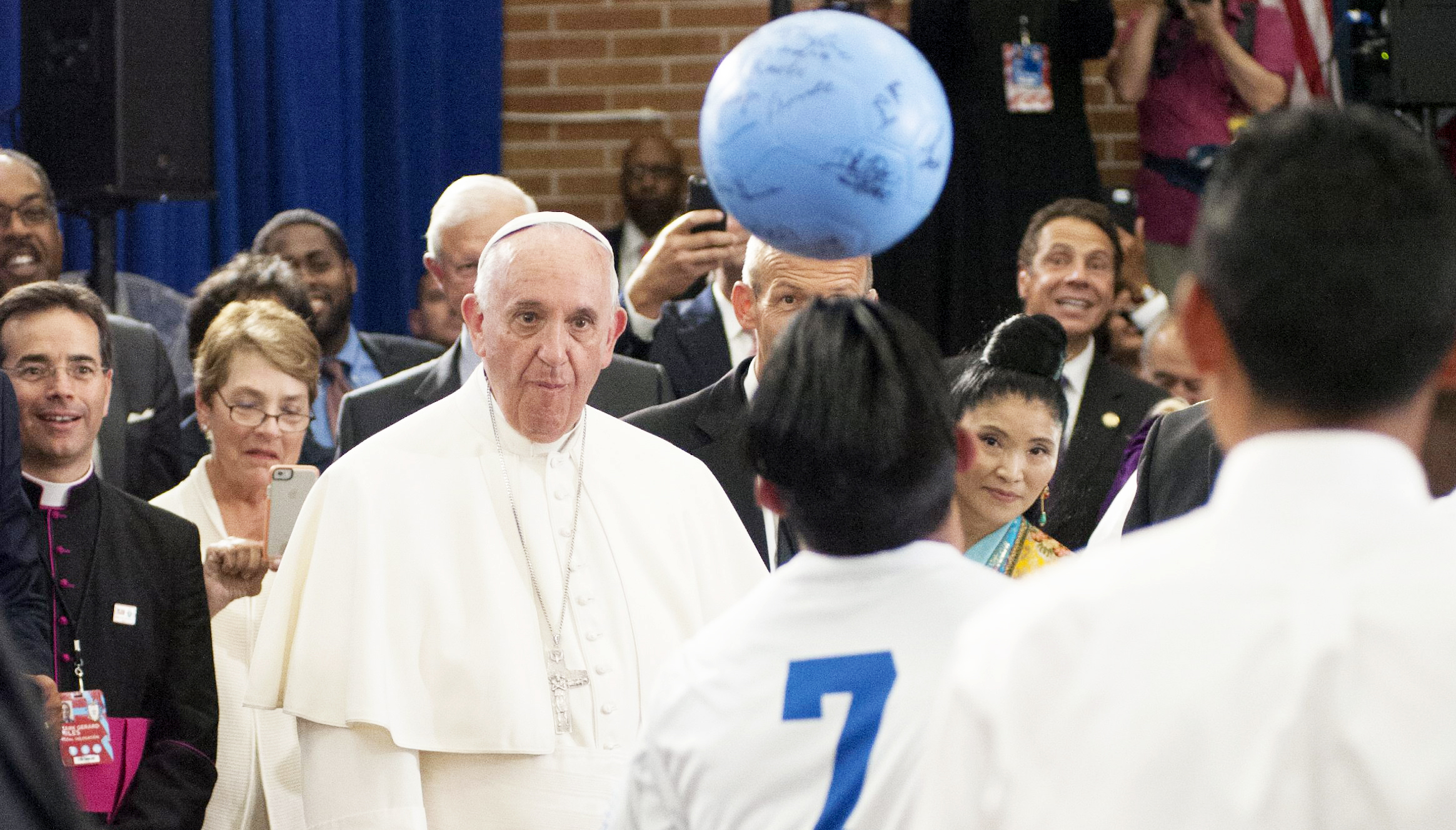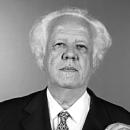
'Not a sphere but a polyhedron': The sacred geometry of Pope Francis
Sometimes I feel a bit sorry for the journalists who cover Pope Francis but don't speak Spanish.
MÁS EN ESTA SECCIÓN
Sometimes I feel a bit sorry for the journalists who cover Pope Francis but don't speak Spanish. As everyone has noted, the Holy Father is at his best, at his most engaging when he is speaking off-script — which only really happens when he speaks in Spanish.
Take the the Independence Hall talk yesterday. The first moment he went off script was when he talked about globalization — the good of it and the bad of it. He referred to globalization as something that can flatten difference in an oppressive way. What would be better, he said going off-script, would be to aim for a globalization that treats differences of individuals and cultures "not as a sphere but a polyhedron."
I don't know how other Spanish-speakers reacted, but the statement made me smile and admire the pope's ability to speak on many levels at once. The most commonplace spherical polyhedron, of course, is the soccer ball — and the pope is famously an avid fan of the sport.
The mention (he went on to elaborate on the idea) is also a very neat comment both immigration and religious liberty, the two topics on which he was speaking. Much anti-immigrant rhetoric — and anti-refugee rhetoric in Europe — focuses on the lack of "assimilation" to host (willing or unwilling) countries. In fact, some anti-immigrant discourse is predicated outright on the idea of some people being unassimilable and therefore undesirable. But integration — immigration advocates have long told us — should be our hope for immigrant communities, not assimilation. And the pope reiterated precisely this view in his comments at Independence Hall.
"Do not be ashamed of what is part of you, your life blood," he said to the immigrants gathered at the event. Keep your language, he counseled, keep the traditions and wisdom of your heritage and ancestry.
But Pope Francis' extemporaneous comment also referenced sacred geometry — the symbolic geometry with which sacred places of many faiths are constructed. And the fact that he was speaking of the globe when he said what he did is no coincidence. The pope's encyclical, Laudato Si', has been lauded for its focus on environmentalism and climate change, but implicit (and explicit) in it is an intersectional understanding that lack of regard for the environment echoes lack of regard for those who live — sometimes quite precariously — closest to it. That isn't so much us here in the United States, but those from the Global South, where we've relocated some of our most environmentally suspect (and humanistically suspect) business operations.
I was horrified, earlier in the week, to hear a U.S. broadcaster characterize Laudato Si' as reminding us (in the developed world) to be helpful to countries with less money — as if our own corporations and consumerism were somehow set apart from the rest of the world (and offered impunity). U.S.-centrism and exceptionalism has been rife in the English-language media's coverage of Pope Francis' visit. I can't remember whether it was a MSNBC or CNN commentator who, after the Pope spoke to the Congress, ventured the opinion that the references to Dorothy Day and Thomas Merton indicated that the Holy Father's formation was shaped by these exemplars of U.S. populist and engaged Catholicism. That isn't so much wrong as it is wincingly self-centered: Latin America has its own exemplars of social justice, and Pope Francis' mention of Day and Merton seems more likely a personal way to note our part in the context of the wider Catholic world — not the other way around.
Likewise, while we in the United States heard Pope Francis' words about religious freedom as revolving around issues of LGBT rights and marriage equality, as well as healthcare coverage that includes birth control, for those outside of the United States, the words resonate differently. The pope was preceded at Independence Hall by a speaker who gave voice to this broader scope of religious freedom — he was Indonesian, ethnically Chinese and Christian — by speaking of type of religious persecution that too often ends in physical human rights abuse, even death.
It is a wonderful bit of irony that the representative of the religion that in the middle ages bristled at the idea that the planets orbited around the sun rather than the earth, is the person who had to gently remind us that the U.S. is a great country, but is not the center, either, around which all other countries and cultures should orbit and adapt.
Instead Pope Francis conjured that spherical polyhedron soccer ball.
"The beautiful game" is a globally beloved sport. There was a time in the United States when we were proud to state that we were the exception and that soccer would not cross our borders without football, baseball, baskeball and hockey taking turns to keep it out. But that was then and this is now. Soccer has become more and more popular here, and it is not a zero sum game — the other more traditionally "American" sports are neither threatened nor displaced. And so in places like Philadelphia's FDR park in South Philly, the Galaxy (a team of Mexican immigrants) plays in matches against teams of African and Asian immigrants in a 34 team amateur league. Philly Jamaicans and Mexicans filled Lincoln Financial Field for the recent CONCACAF Gold Cup.
Like a soccer ball (el esférico, as we say in Spanish), when the individual pieces are sewn together into a whole, what ensues can be a thing of beauty.
All of that in one comment, off script, spoken by a soccer-loving, world-loving, immigrant-loving pope standing in front of us. Amazing.






DEJE UN COMENTARIO:
¡Únete a la discusión! Deja un comentario.